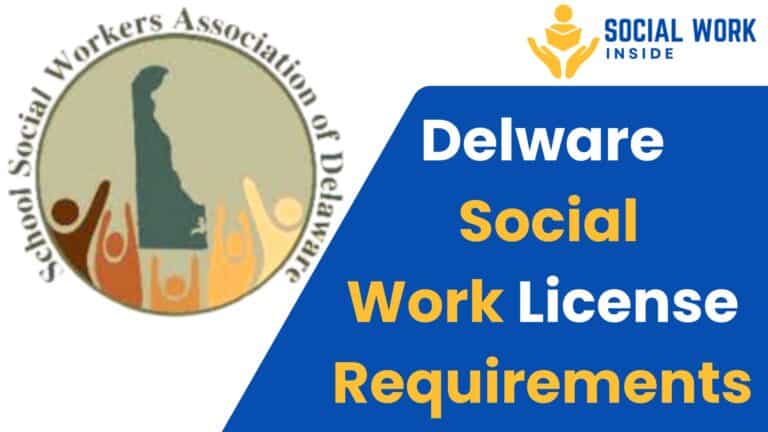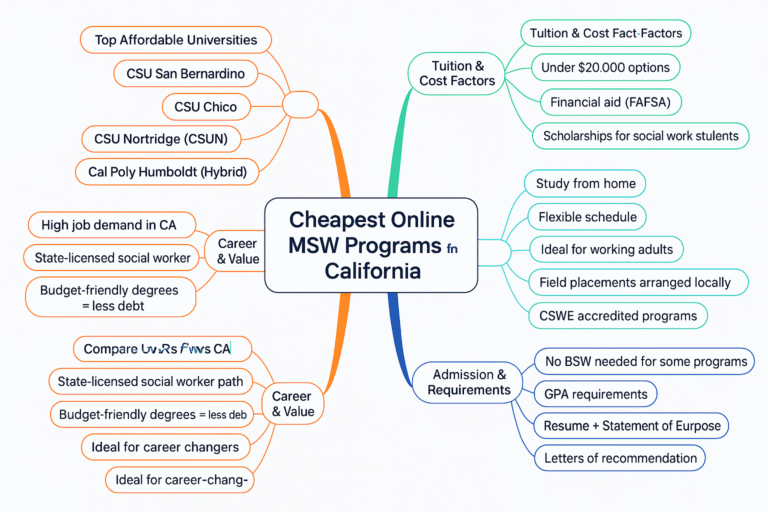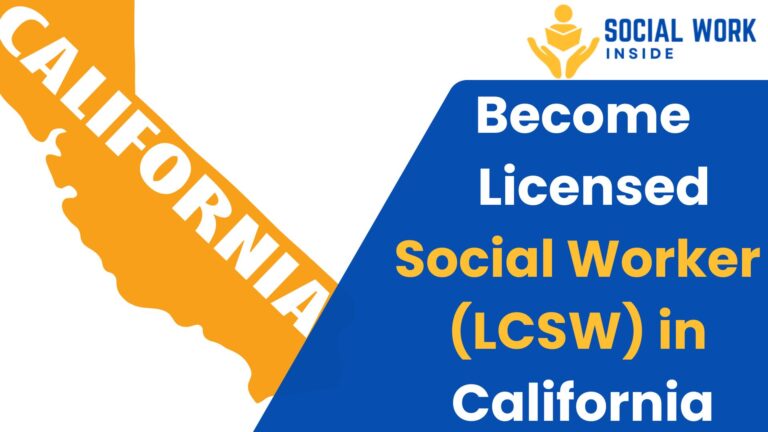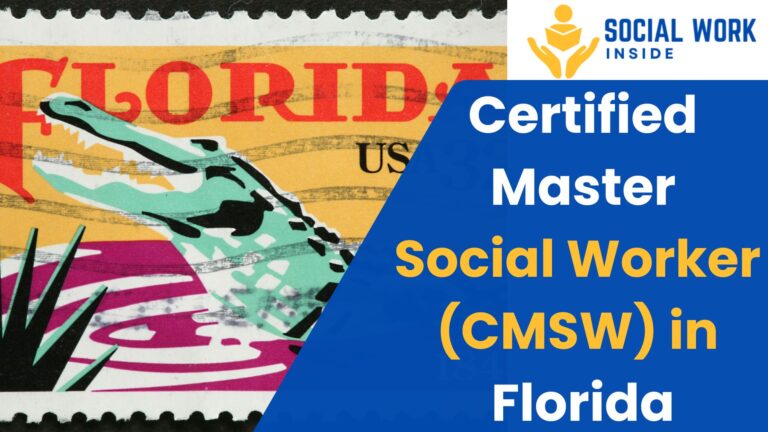Idaho Social Work License: Guide to Become Social Worker in Idaho
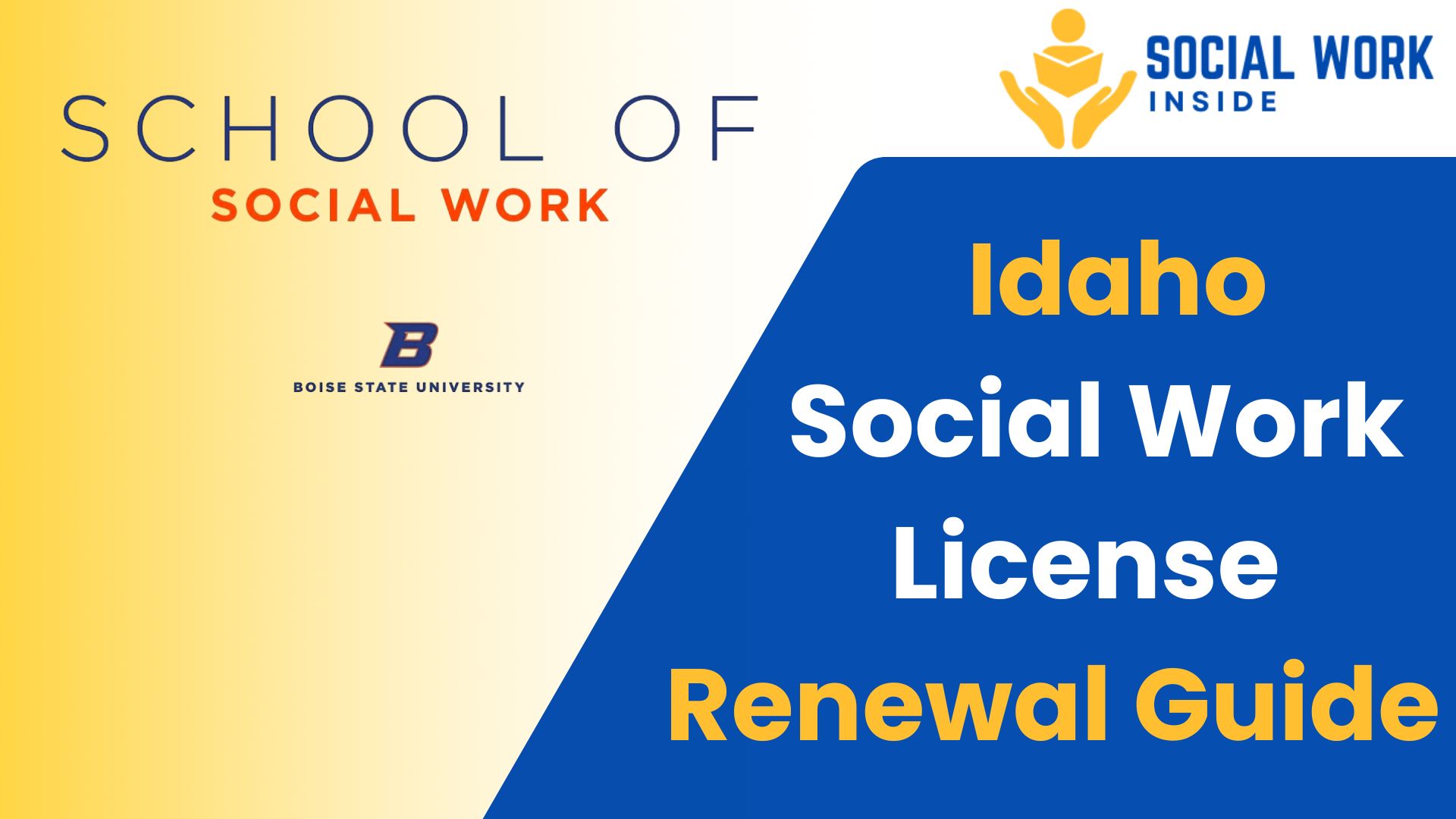
If you want to become a social worker in Idaho, you must first get a professional license. This process ensures that you have the right education, skills, and training to help people effectively. While it may seem complicated, don’t worry! This guide will break everything down into simple steps so you can understand exactly what to do.
Step 1: Understand Idaho Social Work License Requirements
To work as a social worker in Idaho, you need to meet certain license requirements set by the Idaho Board of Social Work Examiners. There are three main types of licenses:

Licensed Social Worker (LSW)
- Requires a Bachelor’s Degree in Social Work (BSW) from a school accredited by the Council on Social Work Education (CSWE).
- Allows you to work in entry-level social work jobs.
Licensed Master Social Worker (LMSW)
- Requires a Master’s Degree in Social Work (MSW) from a CSWE-accredited school.
- Lets you take on more advanced social work roles but not clinical work.
Licensed Clinical Social Worker (LCSW)
- Requires an MSW degree and 3,000 hours of supervised experience (about two years).
- Let’s you provide clinical social work services, such as therapy and counseling.
Each of these licenses has its own rules, but the certification process follows a similar path.
Step 2: Complete the Social Worker Application Process
Once you have the right degree, the next step is to start the application process through the Idaho Division of Occupational and Professional Licenses. Here’s what you need to do:
Fill Out an Application – You can apply online through the state’s licensing website.
Submit Your College Transcripts – These must be sent directly from your school.
Pay the Application Fee – Fees vary depending on the license type.
Provide Supervision Documents – If applying for an LCSW, you must submit proof of your supervised experience hours.
After submitting everything, the Idaho state licensing board will review your application. This can take a few weeks to a few months, so be patient!
Step 3: Prepare for and Pass the Social Work Exam
Passing the social work exam requirements is an essential part of getting licensed. Idaho requires candidates to take an exam from the Association of Social Work Boards (ASWB). The exam you take depends on your license level:
- LSW → Take the Bachelor’s ASWB Exam
- LMSW → Take the Master’s ASWB Exam
- LCSW → Take the Clinical ASWB Exam
The exam tests your knowledge of social work practices, ethics, and laws.
Social Work License Exam Prep in Idaho
To pass the ASWB exam, it’s important to prepare well. Here are some helpful tips:
Use Study Guides – Books like the ASWB Exam Prep Guide and Social Work Licensing Exam Study Guide are great resources.
Take Practice Tests – This helps you get familiar with the exam format.
Join a Study Group – Studying with others can keep you motivated.
Take an ASWB Prep Course – Many online courses offer guided learning.
With proper exam preparation, you can pass the test on your first try!
Step 4: Gain Supervised Experience (LCSW Applicants Only)
If you’re applying for an LCSW, you must complete supervised experience before you can take the clinical exam. This means working under a licensed clinical social worker for at least 3,000 hours over two years.
Supervised Experience Requirements:
- Work under an LCSW who is approved by the Idaho state licensing board.
- Complete at least 100 hours of direct supervision.
- Submit documentation proving your experience when applying for your clinical social work license.
This hands-on training is important because it helps you develop the skills needed for clinical social work.
Step 5: Get Your License and Start Practicing
After passing the exam and meeting all license requirements, you will receive your professional license from the Idaho Board of Social Work Examiners. Now, you can legally work as a social worker in Idaho!
Step 6: Keep Your Idaho Social Work Certification Active
Once you’re licensed, you must renew your Idaho social work certification regularly. Idaho requires social workers to go through a renewal process every two years.
License Renewal Process
Pay the Renewal Fee – The fee depends on your license level.
Complete Continuing Education (CEU) Hours – This helps you stay updated on new social work practices.
Submit Renewal Documents – Proof of your continuing education hours must be sent to the National Association of Social Workers (NASW).
Keeping your license active ensures you can continue helping people through social work.
MSW Programs in Idaho
| University Name | Course Length | Mode of Course |
| Boise State University | 2 years (Regular); 1 year (Advanced Standing) | Full-time or Part-time |
| Idaho State University | 2 years (Traditional); 1 year (Advanced Standing) | Full-time or Part-time |
| Northwest Nazarene University | 2 years (Traditional); 1 year (Advanced Standing) | Full-time or Part-time |
Notes:
- Boise State University: Offers flexibility with both full-time and part-time tracks; Advanced Standing is for BSW graduates.
- Idaho State University: Provides options for full-time or part-time study, with a hybrid format requiring some on-campus attendance.
- Northwest Nazarene University: Designed for working professionals, offering evening/weekend classes with both full-time and part-time enrollments.
Online MSW programs in Idaho
| University Name | Course Length | Mode of Course |
| Boise State University | 2 years (Regular); 1 year (Advanced Standing) | Fully Online |
| Idaho State University | 2 years (Traditional); 1 year (Advanced Standing) | Hybrid |
| Northwest Nazarene University | 2 years (Traditional); 1 year (Advanced Standing) | Online with Flexibility |
Notes:
- Boise State University: The only fully online MSW in Idaho, with asynchronous coursework and local field placements.
- Idaho State University: Hybrid model includes online coursework plus on-campus sessions in Pocatello, offering both full-time and part-time options.
- Northwest Nazarene University: Primarily campus-based but offers some online coursework, with evening/weekend scheduling for flexibility; supports both full-time and part-time students.
Social Work Salaries in Idaho
| Idaho Social Work Careers | Number of Social Workers in Idaho | Annual Mean Social Work Salary |
| Child, Family, and School Social Workers | 1200 | $48,510 |
| Mental Health and Substance Abuse | 670 | $51,290 |
| Healthcare Social Workers | 590 | $62,430 |
| All Other Social Workers | 320 | $55,780 |
Note: Information on the above social work salaries in Idaho was retrieved from the U.S. Bureau of Labor Statistics Occupational Employment and Wage Estimates: Idaho
Idaho Social Worker Organizations
Here are three prominent social worker organizations in Idaho, each with a brief introduction and their key roles:
- National Association of Social Workers (NASW) Idaho Chapter This is the state branch of the national NASW, dedicated to supporting social workers across Idaho.
Role: It provides professional development, advocacy, and resources to enhance social work practice and promote policies benefiting vulnerable populations. - Idaho Society for Clinical Social Work (ISCSW) A statewide network of clinical social workers, ISCSW focuses on fostering professional growth and support.
Role: It offers networking opportunities, continuing education, and advocacy to improve clinical social work services and professional well-being. - School Social Work Association of Idaho (SSWAI) SSWAI unites school social workers to strengthen their impact in educational settings throughout Idaho.
Role: It promotes school social work through professional development, advocacy, and resources to support students and families effectively.
Final Thoughts
Getting a social work license in Idaho is an exciting step toward helping people and making a difference! While the certification process takes time, following these simple steps will make it much easier. Stay positive, prepare well, and soon, you’ll be a licensed social worker in Idaho.
If you found this guide helpful, share it with others who might need it. Good luck on your journey to becoming a licensed clinical social worker!

